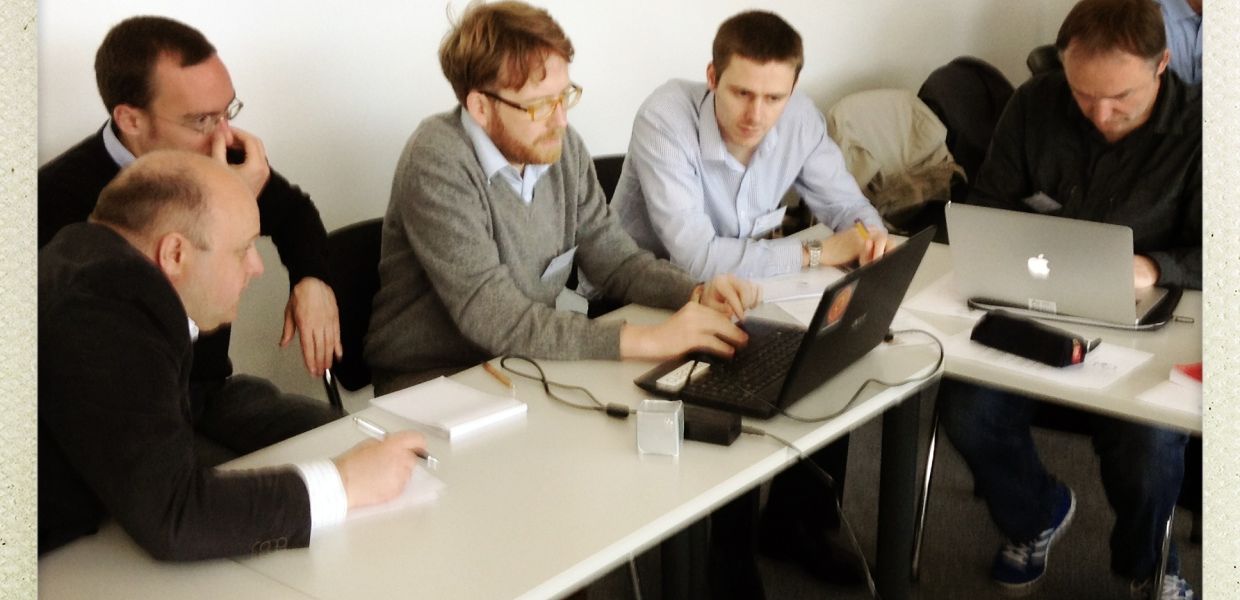Defining The Cloud Through Expert Forums


To help with this task, we will hold four Expert Forums over the course of the project, the first of which happened recently held in Dublin. It brought project partners together with researchers from the Humanities discipline.
Evaluating Possibilities
The goal was to establish the current possibilities for conducting research via Europeana and to make suggestions for developing future research possibilities as Europeana moves towards a cloud-based service.
The first half of the one-day session involved a series of exercises, beginning with a “Europeana Treasure Hunt” where teams had to register on Europeana and complete three Europeana-based challenges within 15 minutes. This allowed researchers to evaluate Europeana’s features for searching and saving results.
Other activities looked at the type of metadata typically provided by Europeana contributors and the ability to zero in on something very specific in the Europeana database. Often a researcher doesn’t want to manually filter through search results to find the most relevant item so this last task was to establish if easier possibilities for filtering exist.

In the second part of the workshop, participants were asked to create case studies that illustrated how a fictional researcher might use Europeana both in its current form and in a future version with new tools and services (particularly those that could be supplied through the cloud).
By the end of the session, participants had identified several areas in which the Europeana Cloud project could improve the usefulness of Europeana for researchers. Their suggestions included:
Metadata Ranking: It was felt that few items in Europeana had sufficient metadata to make them truly useful for research. A ‘star-ranking system’ for metadata was suggested as a possible solution. Users of Europeana could rate an item for the quality of its metadata from 1 star (poor quality) up to 5 stars (excellent quality) and this would allow researchers to focus on the most useful objects.
Multi-lingual Resources: At present, metadata can be submitted to Europeana in the native language of the contributing organisation and users must search in every language to be sure they have searched thoroughly for a particular term (eg. 'World War One’, ‘La Première Guerre Mondiale’ (French), ‘Pierwsza Woyna Swiatowa’ (Polish), etc). The Expert Forum recommended that multilingual metadata be dynamically generated by the system as it is impractical to ask content providers to provide multi-lingual search terms, and that a thesaurus or translation tool be built that can automatically link multilingual metadata.
Spatial and Temporal Mapping of Results: Better browsing functionality was unanimously recommended. Suggestions included spatial mapping and temporal mapping via maps and timelines. Simple conceptual maps, such as tag clouds or other visualisations would also be desirable.
Development: There was overwhelming consensus that researchers from all disciplines would want to export result sets into specialised, often domain-specific tools. It was therefore strongly recommended that Europeana not develop specialised tools, but rather focus on:
-generalised tools to aid in discovery;
-tools that allow for (meta)data export into a variety of formats;
-tools that provide more sophisticated and targeted filtering of results than are currently available.
The workshop also resulted in a number of other learning points, all of which will feed into the work of Europeana Cloud to develop better tools and services for Europeana and the research community. A complete overview of the day is available in the full Expert Forum report.
Future Expert Forums
The second and third expert forums will take place towards the end of 2013 and will look specifically at tools that could be developed within Europeana Cloud for the Humanities (Expert Forum 2) and the Social Sciences (Expert Forum 3).
The fourth and final Expert Forum will be held in mid-2015. It will provide a broad review of the tools and content that can be accessed through Europeana Cloud, and develop recommendations for future work, including how the engagement of researchers will continue beyond the lifetime of the project to ensure their future use and uptake of the Europeana Research platform.
